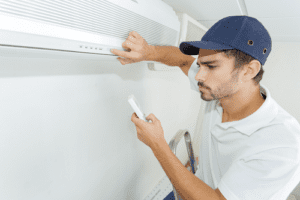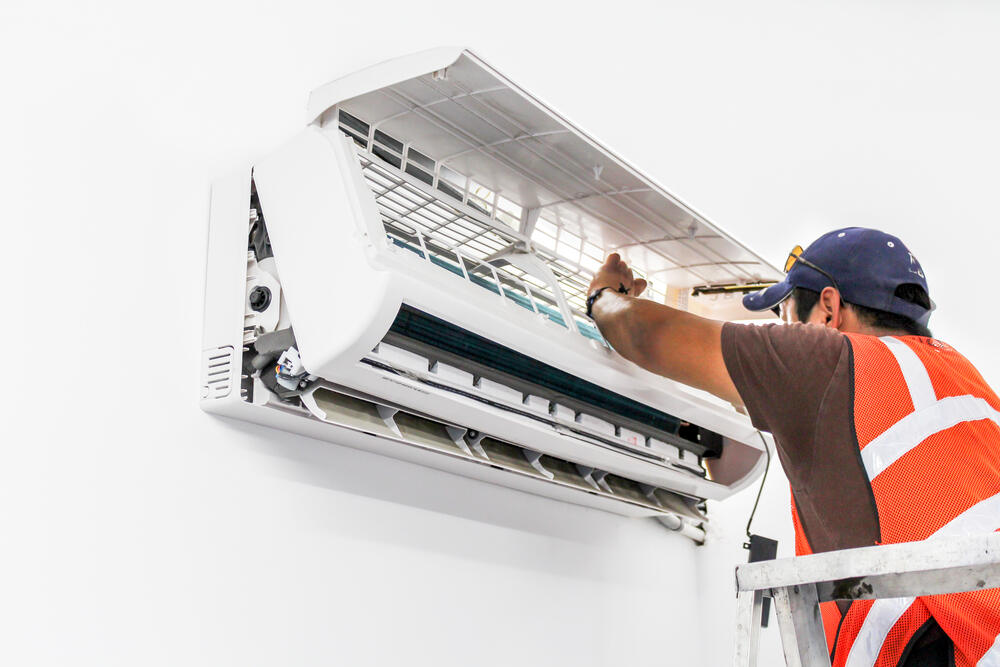What to Do If Your Air Conditioner Turns On and Off Repeatedly
In an ideal world, everything always works exactly as it should. Your computer never crashes, you never need to change a lightbulb, and public transit is always on time. Unfortunately, we don’t live in that world, and there are times that you have troubles related to your HVAC system. One common issue is when your air conditioner turns on and off repeatedly. If this happens to you, you don’t need to be alarmed, but it does indicate that there’s a problem worth addressing.
Savvy homeowners and business managers should be aware of the ways that this condition can impact you in terms of both comfort and finances, as well as the common causes behind it. Fortunately, there are also many ways that you can effectively address this issue, meaning it’s not something that you have to tolerate for long.
Short Cycling: When Your Air Conditioner Turns On and Off Repeatedly
 The technical term for when your air conditioner turns on and off repeatedly is “short cycling.” This term includes multiple underlying causes because it describes the symptom rather than one explicit problem. The most common reasons your system may be short cycling include:
The technical term for when your air conditioner turns on and off repeatedly is “short cycling.” This term includes multiple underlying causes because it describes the symptom rather than one explicit problem. The most common reasons your system may be short cycling include:
- Dirty System Components – Over time, your system accrues buildup that needs regular cleaning. This buildup can occur nearly anywhere in your HVAC system, but the most common culprits that could cause short cycling are your filters and your vents.
- Thermostat Position – In addition to letting you set the temperature, your thermostat is also the device that detects the current temperature. If it’s installed next to an air vent, then it is repeatedly cooled before the rest of the room, tricking it into thinking that the system doesn’t need to continue.
- Freon Loss – If your system starts leaking freon, then it interferes with your system’s internal pressure. This interference can cause many problems, one of which is short cycling.
- Inappropriate Building Load – Sometimes, the HVAC system is too powerful for what the building needs, which can occur due to selecting a system intended for a larger building, but it can also happen if you install a highly effective installation in what used to be a drafty building.
Regardless of the specific cause, short cycling has several negative impacts. First, like a car, the more that you turn your system on and off, the more wear that its components experience. The damage is incremental, and on the scale of years or decades, it can lead to repairs and replacements that you otherwise wouldn’t need. Similarly, it’s less efficient for a system to cycle on and off rapidly, so you’ll be paying more on your electric bill during the life of your system. Finally, it’s simply less comfortable to have your rooms not be adequately cooled when the system keeps turning off.
How to Address the Underlying Issues
Now that we have a handle on what causes short cycling, let’s consider the ways that you can address these issues with help from a qualified HVAC contractor, in order of simplest to most complicated:
- Dirty System Components – Fortunately, if this is causing your short cycling, you’re in luck. Most homeowners and building managers can easily change dirty filters, which can alleviate the problem. We recommend doing this every month as a form of preventive maintenance. If the problem is in your ducts or another part of the system, then you should contact your HVAC contractor for a cleaning. Again, we recommend scheduling this cleaning every year or two.
- Thermostat Position – While some people that are quite handy when it comes to DIY projects can handle moving the thermostat, the potential electrical work that it involves may be too daunting or dangerous for those who lack the skill. Therefore, we recommend that you arrange for a licensed HVAC professional to move the thermostat for you.
- Freon Loss – This is another issue that requires an HVAC contractor but is ultimately relatively simple. First, the contractor will identify the source of the leak and patch it up or replace broken parts as needed. Then, they’ll add more freon to the system to bring its internal pressure to the appropriate level.
- Inappropriate Building Load – If the problem you’re facing is caused by a mismatch between your system and building size, then your options are much more limited. You may need to replace the system with a new one, which can be quite costly. In some cases, though, your HVAC contractor may be able to help you limit the system’s output by making mechanical adjustments to it. If so, then you can address the short cycling without breaking your budget.
Overcoming Short Cycling, When Your Air Conditioner Turns On and Off Repeatedly
If you’ve experienced this issue, you’re not alone, and you can find help. We encourage you first to check your air filters. If the problem persists, then the next step is to call your trusted HVAC contractor to help you diagnose and resolve the underlying issue so that you can save money and enjoy the comfort that your HVAC system is supposed to provide.



